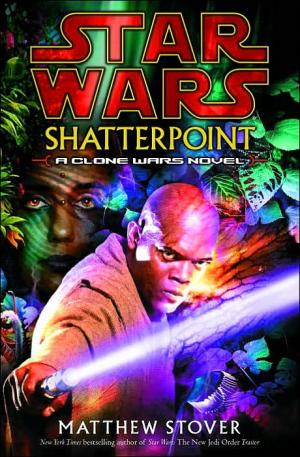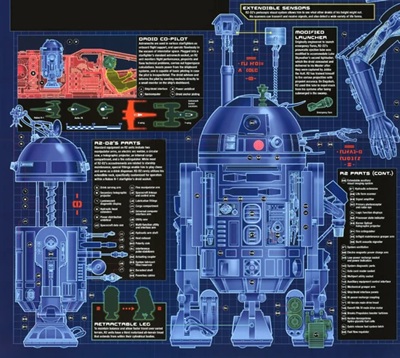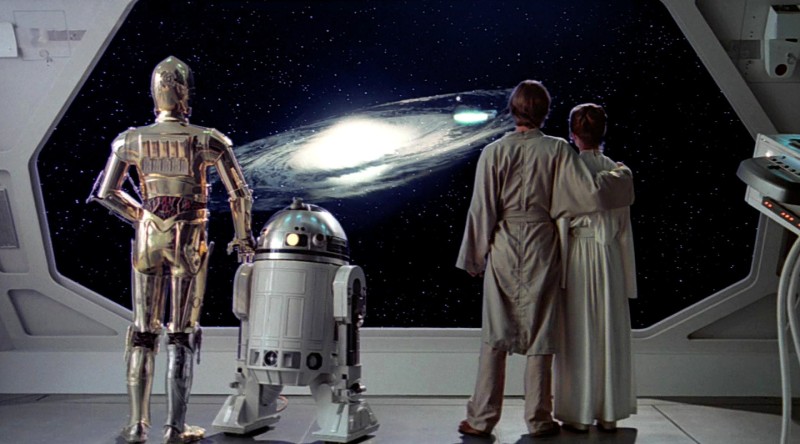John Boyega, Daisy Ridley, Adam Driver, Oscar Isaac, Andy Serkis, Domhnall Gleeson, and Max von Sydow. This list of new cast members for Episode VII should excite me because it means we’re getting closer to actually having a new movie. John Boyega, Daisy Ridley, Adam Driver, Oscar Isaac, Andy Serkis, Domhnall Gleeson, and Max von Sydow. This list should put me on the edge of my seat because it means Star Wars is going to move on. No more waiting on information for the EU or the not-EU. We have a set story with real people ready to step into those roles to bring life to characters on the screen. John Boyega, Daisy Ridley, Adam Driver, Oscar Isaac, Andy Serkis, Domhnall Gleeson, and Max von Sydow. Instead, I feel disappointed. Disappointed that out of seven names released we have one female character. One. I don’t like being disappointed with Star Wars. I am part of this specific site because we don’t whine for the sake of hearing ourselves whine. We aren’t negative about every new detail released. We like our Star Wars and we’re striving to accept what is being given to us: a new start. We’re excited about the future of the franchise and hoping to help people move on with our opinions and discussions. Read More
Category: Opinion
A Case for Starting Over, Part VI: Happily Ever After
 Over the course of this series, we’ve examined many aspects of the Expanded Universe and how they might be improved by a potential (hard or soft) reset of the franchise’s accumulated continuity: the rebellion’s struggles to establish its legitimacy in the aftermath of Return of the Jedi, the long-term prospects of the New Republic and the Imperial Remnant, the recent dysfunctional nature of the New Jedi Order and its failure to reach the (rather low) bar set by its predecessor, and the universe’s persistent inability to let go of the torch and let it conclusively pass to a new generation of heroes.
Over the course of this series, we’ve examined many aspects of the Expanded Universe and how they might be improved by a potential (hard or soft) reset of the franchise’s accumulated continuity: the rebellion’s struggles to establish its legitimacy in the aftermath of Return of the Jedi, the long-term prospects of the New Republic and the Imperial Remnant, the recent dysfunctional nature of the New Jedi Order and its failure to reach the (rather low) bar set by its predecessor, and the universe’s persistent inability to let go of the torch and let it conclusively pass to a new generation of heroes.
Most of these topics have been fairly broad, dealing with overarching plots and themes that involve entire arrays of characters and span dozens of books and several decades – both in- and out-of-universe. For our final act, however, we’ll be coming down from our bird’s-eye view and taking a more personal approach at evaluating the paths our heroes’ lives have taken since they last appeared on-screen in 1983.
Top Shelf: Shatterpoint

I can remember when I first read from Shatterpoint. It was a preview, in the back of Force Heretic: Refugee, for the first-ever Clone Wars book. At the time, my enthusiasm for Star Wars was at a low ebb; I’m not sure it was for any particular reason, but I had been sustaining an all-consuming fandom for six years, and The New Jedi Order had been dominating the Expanded Universe for years and changing the universe in ways I wasn’t sure I was ready for and was mired in the particularly dull Force Heretic Trilogy. I was just starting to get a little burnt out and needed a breath of fresh air. That Shatterpoint preview was it.
Immediately, the prose was punchy, atmospheric — it radiated attitude. As I read, Mace Windu — a guy we had seen in the movies but didn’t know that much about — landed on his homeworld, a new planet that leapt from the page with unique character, a jungle world so rancid its cities must live under sterilization fields. Then the action hit. Windu, naked after going through the probiotic showers required after arrival, finds a couple thugs harassing the other naked travelers in the locker room, stealing their valuables. Coldly, indifferent to the vulnerability of his nudity, Windu tough-talks the thugs, a supremely confident badass warning off weaklings he doesn’t want to bother with — but kind of does. When they go for him, he knocks them senseless in a vivid, expert action scene. It turns out they’re the local cops; that’s the kind of world this is. Windu goes on to meet his Republic contact; on the street, they’re caught up in some sort of riot, a fast-expanding street battle, and she’s hit with a blaster bolt. As Windu kneels over her, trying to help her, the local militia come up.
The militia behind him clattered to a stop. “You! Korno! Stand away from that woman!”
He glanced back. Six of them. Firing stance. The lightpole at their backs haloed black shadow across their faces. Plasma-charred muzzles stared at him. “This woman is wounded. Badly. Without medical attention, she will die.”
“You’re no doctor,” one said, and shot him.
The Expanded Universe Explains, Vol. VII
16. What was R2-D2’s backstory pre-Episode I?
 Technically, I can’t answer this one, but I’m including it here largely as a curiosity: unless both my memory and Wookieepedia fail me, there is essentially zero information about Artoo prior to The Phantom Menace. He seems to be in pretty good shape when he first appears in the film, so it’s reasonable to conclude that he was a relatively new arrival—but then, the Naboo are notable for keeping pretty much everything nice and polished, so even that’s far from certain.
Technically, I can’t answer this one, but I’m including it here largely as a curiosity: unless both my memory and Wookieepedia fail me, there is essentially zero information about Artoo prior to The Phantom Menace. He seems to be in pretty good shape when he first appears in the film, so it’s reasonable to conclude that he was a relatively new arrival—but then, the Naboo are notable for keeping pretty much everything nice and polished, so even that’s far from certain.
Interestingly, despite the fact that TPM ostensibly shows him first being put together, there is a bit more information out there regarding Threepio’s pre-saga existence. Before the prequels, in fact, older Expanded Universe sources had established him as being more than 100 years old. This was reconciled with TPM thanks to the fact that he’s already more or less operational—Anakin says he built him, but there’s no indication that he started from scratch. Read More
What form of Escapism does Star Wars offer?

What started off as a defense instead became a prosecution, which then collapsed due to it being beyond such simple binary definitions! Why? Well I suppose exhibit A is this interesting quote from an essay by Steven Erikson of Malazan fame:
The Malazan Book does not offer readers the escapism into any romantic notions of barbarism, or into a world of pure, white knight Good, and pure, black tyrant Evil. In fact, probably the boldest claim to escapist fantasy my series makes, is in offering up a world where we all have power, no matter our station, no matter our flaws and weaknesses—we all have power.
(http://www.stevenerikson.com/index.php/the-problem-of-karsa-orlong/)
